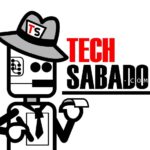MED-TECH | Pandemic fuels global demand for ‘cobots’ in health sector
Universal Robots’ cobot deployments include applications in critical front-line industries such as healthcare, medical testing, sanitisation, disinfection, medical equipment.

Denmark-based collaborative robots (cobots) technology provider Universal Robots (UR), recently advised business leaders in the Philippines, across health and related key industries, to leverage robotic automation in response to COVID-19 pandemic challenges.
Cobots have emerged as a tremendous force for good in the global battle against COVID-19. Contributing to the global response to the pandemic, Universal Robots’ cobot deployments include applications in critical front-line industries such as healthcare, medical testing, sanitisation, disinfection, medical equipment, as well as tools to re-shore production and enable operations to be more flexible.
“The COVID-19 outbreak has caused a major shake-up across the global economy,” said Darrell Adams, Head of Southeast Asia & Oceania for Universal Robots. “Companies around the world and in the Philippines need to pivot and adapt to this new reality fast. The use of robots is highly encouraged in light of new standard operating procedures, including physical-distancing and minimal human contact. Healthcare being one of the top priorities in the Philippines to battle COVID-19, it is pivotal to look for solutions that could respond to new demands rapidly. As such, collaborative robots or cobots are well placed to cope with these challenges.”
Minimizing human contact and protecting workers healthcare staff and patients from cross infections, cobot applications in the health and related industry have been rapidly developed and rolled out globally this year. Some of the most recent successful deployments include the following:
Cobots in sanitization & disinfection
There has been a massive demand for effective deep cleaning and disinfection technologies without involving direct human contact on potentially infected areas. In April 2020, researchers at Nanyang Technological University (NTU) in Singapore unveiled eXtremeDisinfection roBOT (XDBOT), which comprises a UR5 cobot fitted with an electrostatic spray nozzle, and mounted on a mobile platform. The cobot was programmed to mimic human hand movements to get into hard-to-reach areas such as under the beds and tables.
Cobots in COVID-19 testing
Universal Robots’ co-founder Esben Østergaard developed one of the world’s first autonomous throat swabbing robot in collaboration with University of Southern Denmark (SDU). The robot uses UR3 cobot arms fitted with a custom 3D-printed end-effector. Cobots enable the throat swabbing process to be completed within seven minutes, with the swab itself taking just 25 seconds.
Closer to home, Taiwan-based Brain Navi Biotechnology, developed the world’s first autonomous nasal swab test robot using a UR cobot. The cobot could automatically recognize the patient’s facial structure, identify the position of the nostrils, hold a nasopharyngeal swab (like a long cotton swab) with a gripper, and then automatically extend it into the patient’s nasopharynx and stay for about 10 to 25 seconds to collect the secretion specimen; The inspection time only takes two to five minutes, and nearly 100 people could be inspected in eight hours. Except for the initial facial positioning scan settings performed by medical staff behind a transparent protective panel, the entire process does not require human intervention.
The throat and nasal swab robots protect healthcare workers by reducing staff-patient contact with highly infectious diseases at the point of testing.
“Collaborative robots have been used in a number of ways to help companies respond to the global pandemic. Because of its key features such as safety, speed, flexibility and ease-of-use, strong demand for cobots is seen across various sectors looking to resume businesses and function at maximum productivity levels,” said Adams.
Despite being a niche product that accounted for just 3 percent of global robot spending in 2018, cobots are now the fastest growing segment of the industrial robot sector. By 2025, cobots are expected to jump from the niche status to thoroughly mainstream, accounting for 34 percent of global robot spend.




